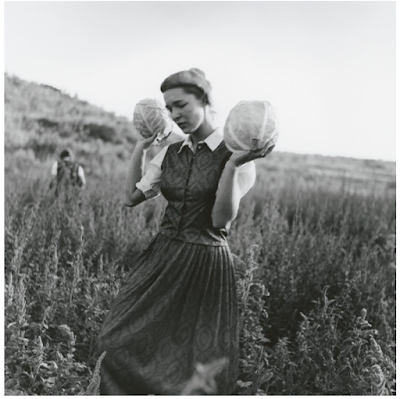Some folks only go half way to accepting changes. Down at Odessa’s Deutsches Fest blowout, we noticed the clannish Hutterite people were still dressed in their 1865 or '66 dress code wardrobe. The home made canned stuff they were selling, looked like it was put up in old collector jars. Their living habits haven’t changed since their great-great-grand-daddies created the Hutterites.
But when it comes to farming, they accept changes at the drop of their old black hats. I’ve seen some of these Hutterite men at Lind’s Dry Land Research Station. They were looking at wheat plots [and] asking questions. During the noon information talks, they took out their stubby pencils and made notes. When everyone was leaving for home, they were looking over a new display combine. I’m told that this religious group farms with up-to-date farm machinery.
And then there are a few folks that have to be sold on reasons to accept change. Some were afraid that this proposed whirling Super Collider might generate a lot of bad stuff. But when a friend read that the Collider might discover building blocks that could take care of cancer, she sort of didn’t mind so much that science is studying matter.
There is one exception where we won’t accept change, and that is our individual concept of evolution and religion. Carol Krupke, a religious man who studied a lot on human behavior, told me years ago, “Don’t take away anyone’s beliefs. They inherently will fight back.” That statement made me more tolerant in considering the self protective shield that we inherited.
I don’t see why we can’t walk hand in hand throughout life with the creationists. Here is a quotation that sort of put the difference in its proper understanding: "Evolution is based on fact, that’s why it’s science. Creationism is based on faith, that’s why it’s religion. And if you want to teach creationism in public schools, that’s fine—that’s absolutely fine. But teach it in comparative religion. Don’t teach it in science as "fact,"
[Postscript] The sociology textbook says: “Religion is a system of communally held beliefs and practices that are oriented toward some sacred supernatural realm. Without this combination of elements, there can be no religion. “



Comments
Post a Comment